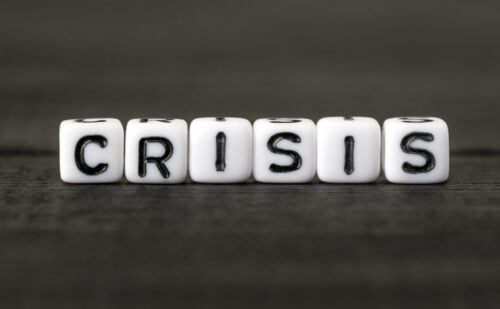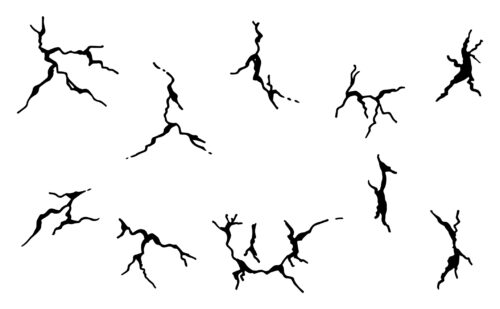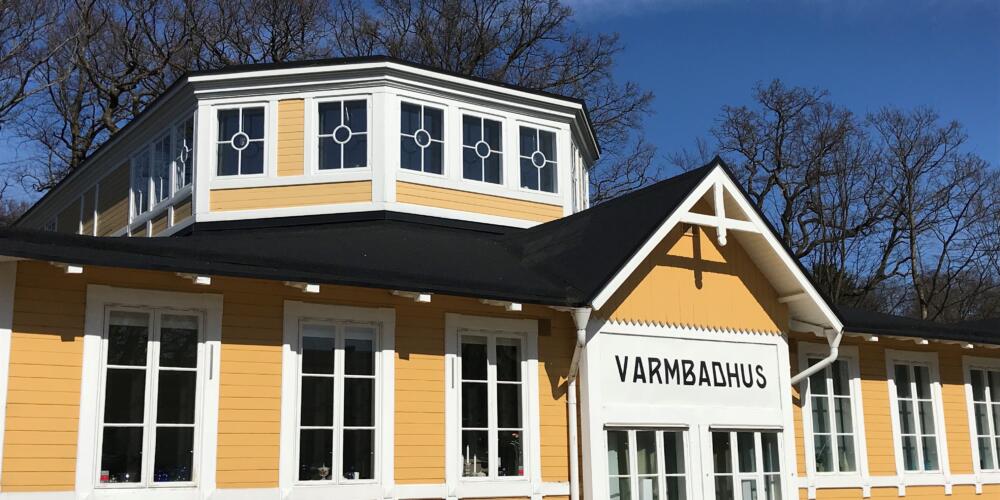
Project of the Month: SPAS
By Alison MacDermott
Posted: 6 June, 2022
HERA is pleased to present the next Project of the Month: SPAS.
The European Spa as a Transnational Public Space and Social Metaphor (2019-2022) is part of the HERA (Humanities in the European Research Area) funding initiative of the European Union devoted to the topic Public Spaces: Culture and Integration in Europe. Within this framework, our project sets out to rethink the spa as a core concept and object of European debate. It investigates how the European spa, with its characteristic institutions such as the Kurpark, sanatorium, grand hotel and casino, developed into a transnational public space and functioned as a stage for the negotiation of political, social and cultural issues of European relevance.
Project Name
SPAS: The European Spa as a Transnational Public Space and Social Metaphor
Project Team
- Dr Anna Cabanel, University of Amsterdam (Postdoctoral researcher)
- Prof. Wiebke Kolbe, Lund University (Principal Investigator)
- Prof Astrid Köhler, Queen Mary University of London (Principal Investigator)
- Dr Christian Noack, University of Amsterdam (Project leader)
- Stefan Poland, MA, University of Amsterdam (Research Assistant)
- Dr habil. Henrike Schmidt, Freie Universität Berlin (Principal Investigator)
- Kaitlin Ward, MA, University of Amsterdam (Research Assistant)
Describe your project development to date
COVID-related restriction notwithstanding, our project explored the role of spas as public spaces across Europe. We document how the spas, at the crossroads of politics and culture, architecture and nature, and medicine and leisure, formed as a microcosm within which political, social and cultural issues of European relevance are negotiated. At the same time, we put particularly emphasis on mechanism of in- and exclusion of people on the basis of class, ethnic or gender differences.
Following the development of the European spas from the 19th century to the present, we traced the changes of institutions and of spa life and culture in the longue durée. For this purpose, we use the web-based data management, network analysis and visualisation environment nodegoat. On this basis, we designed an MA course taught jointly at the University of Amsterdam and the Freie Universität Berlin, using spa history as an entry point for the introduction to digital methods. On this basis, we developed a crowd-sourcing interfaced that should help us to gather a critical mass of data, and to make this data available to other scholars and practitioners in the field.
In the course of our research, we evaluated archival materials and analysed textual and visual representations of spa culture in their historical and contemporary contexts, paying particular attention to the amenability of the spa and its institutions as social metaphors. We included lesser-known spa towns and narratives from the fringes of Europe, against the backdrop of the roles they played in imperial and colonial contexts.
With partners from the resorts, we explored the chances and perspectives this pan-European reconceptualization and revalorization of spa culture offers, given a thriving cultural nostalgia on the one hand, and the actual decay of many resorts on the other, not to forget their use on political agendas in the course of a renaissance of nationalisms in Europe. Knowledge exchange with practitioners and institutions in the field focused on problems of material and immaterial heritage and the future of the spas as genuinely public spaces. We are delighted to have informed the ‘Great Spas of Europe’ successful application for UNESCO world heritage in 2021.
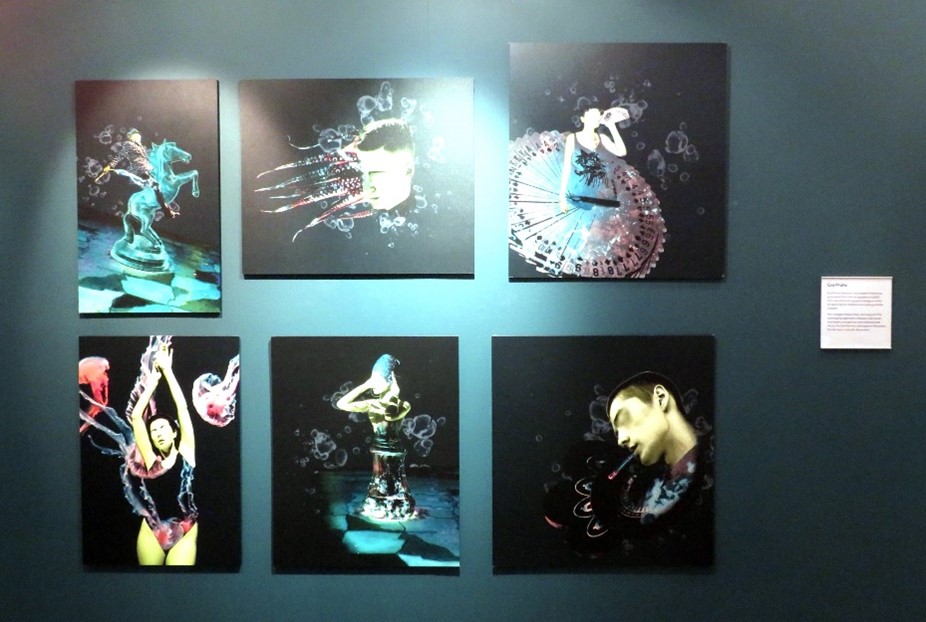
Caption: Dive in. Celebrating European spa culture and its critical reflections through art as part of the exhibition in Harrogate’s historic Mercer Gallery.
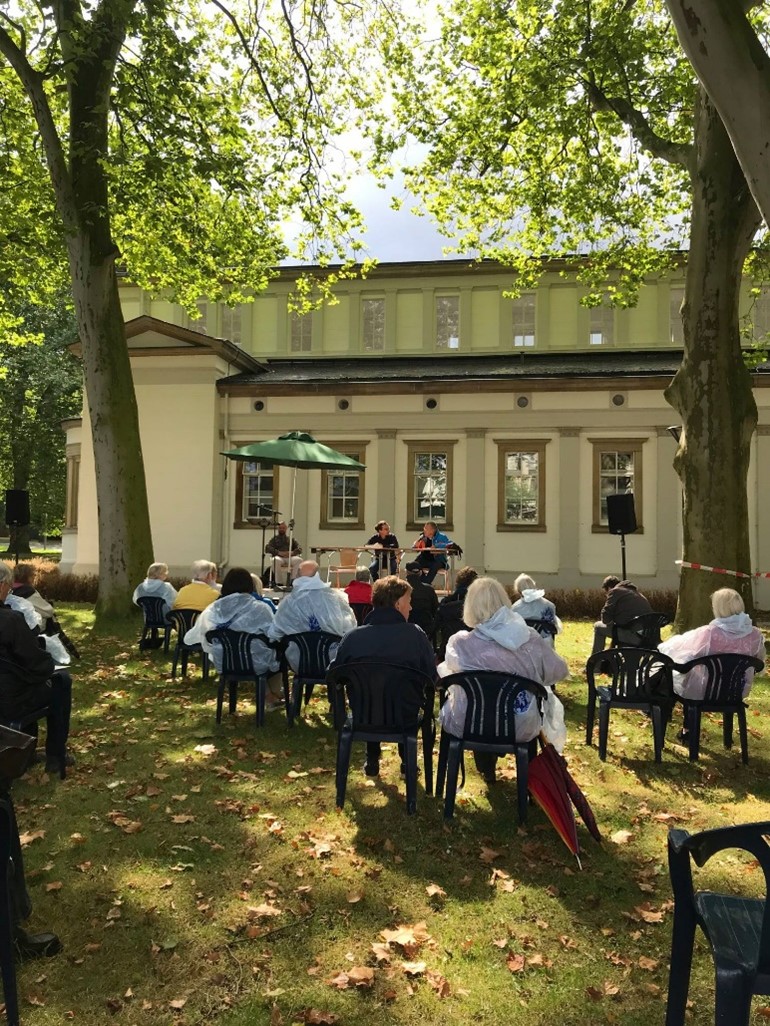
Caption: Presenting European spa culture from antiquity until today at the Literature Festival “Poetic Sources” in the German spa town Bad Oeynhausen, August 2021.
How did the pandemic impact on the project and how has the project adapted?
COVID-19 has affected our research subject – the health resort, our partner institutions and our own field work. Against this backdrop we put more emphasis on exploring the role of heterotopic places like spas and sanatoria as places of containment during epidemics in the past, their changing roles in the current pandemic and their possible significance in the future rehabilitation support of COVID-19 patients, or – more broadly – a general increase in health awareness.
Of course, the Coronavirus pandemic has significantly shaped the changing perception of the object of our research – the spa as a public place. We witnessed, first, a further privatisation of preventive health care due to increased health awareness caused by the pandemic. Health resorts are becoming more medicalized and more exclusive (‘medical wellness’). Second, we observed a reconsideration on the part of the spa officials as well as the state health policy that in relation to both prophylaxis and aftercare (Long-COVID), public financial commitment is gaining importance again. Most of our partner organisations, as well as the stakeholders in the field we surveyed through media monitoring, perceive that, as a result of the pandemic, a new sensitivity is growing for spas as publicly accessible places of health prophylaxis and rehabilitation. Germany, for example, decided in the summer of 2021 to include spa cures once again in the services funded by the obligatory health insurance funds.
Interesting Collaborations / Partnerships
We closely co-operated with one of our associate partners, the Royal Pump Room Museum in Harrogate, to produce their exhibition “Dive In: celebrating 450 years of Harrogate’s mineral springs” (September 18th 2021 to March 27th 2022) and contributed a number of art works produced in the context of the project and an online element to the exhibition: https://harrogate-spa-stories.org/
Together with all of our associated partners, we curated our own transnational online exhibition by bringing together individual objects from our partners across Europe and putting them in the wider context of European spa culture. The exhibition will be shown during our final project conference in Brijuni, Croatia in June 2022 and simultaneously we show pictures from the Art project (below) at the Bürgerfest on the occasion of the successful Unesco world heritage bit of the ‘Great Spas of Europe’ in Baden-Baden (Germany).
In the course of the project, we co-operated with new partners, like the ‘Poetic Springs’ literature festival in Bad Oyenhausen (Germany) and the Hamburg based htk academy for communication design. Together with the artist Gaby Bergmann, we invited young artists to reflect on the importance of the spa today between self-optimization and awareness, wellness and natural medicine, private and public health care (not only) in the times of the pandemic.
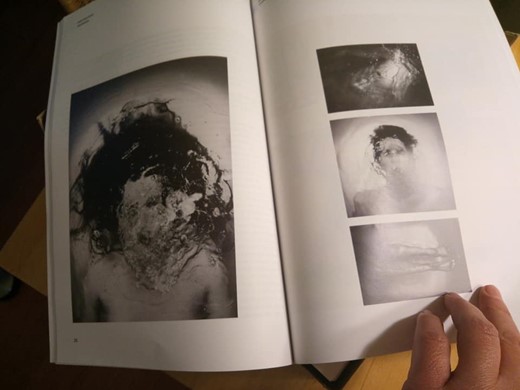
Caption: Art magazine designed by young artists in cooperation with the European spa, exploring the significance of European spa culture for contemporary societies.
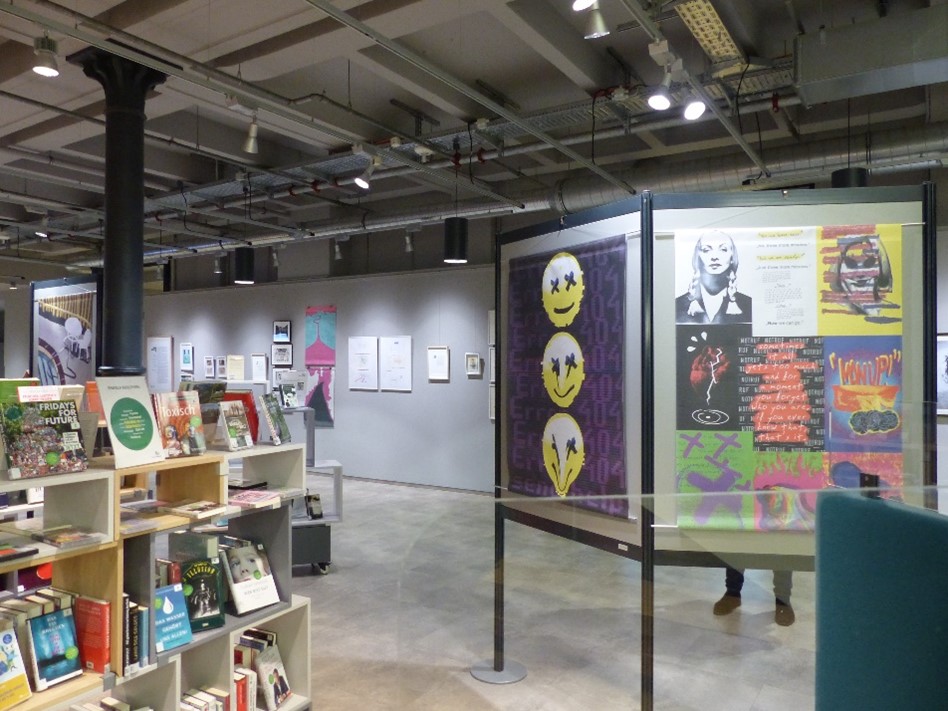
Caption: Exhibition “An Allotted Span of Me-Time” devoted to contemporary spa experiences, organized by the European Spa in cooperation with HTK academy in the Public Library Hamburg
Project Outputs
- Blog post
In light of Russia’s invasion of Ukraine, the European Spa project presents a number of Ukrainian spas whose history and medical resources are rather unknown by the European public and spa-visitors, as a sign of solidarity and to show the cultural richness of sovereign Ukraine.
https://www.facebook.com/theeuropeanspa/posts/494205598901244
- Podcasts
The European Spa. Discover Health Resorts Across the Continent with us. A Podcast Series.
This podcast, designed as a virtual journey through European spas in the broadest sense, from Belgium all the way to the Caucasus, has been created in times of the Corona-virus pandemic. With physical travel not possible, we have been passing the time with these literary imaginations. But even after the end of this pandemic, travel and health resorts will be different. Take the idea of the spa as a “transnational meeting place”, which we are particularly concerned with in our research project. How will it be shaped in the face of travel restrictions, closed or semi-open borders and norms of social distancing?
Episode #0: A Very Short History of the European Spa.
Part 1: From Antiquity to the Enlightenment.
Part 2: From the Enlightenment to the Present Day
Episode #1: Travel and Arrival
Episode #2: Healing Waters and Pleasure Grounds
Episode #3: Transformation and Revival
https://soundcloud.com/user-161013937
http://open.spotify.com/show/0qYfu8P5U9RJJjvYWhQmia
- Media
This part of our website introduces the European Spa database crowd-sourcing project.
https://www.theeuropeanspa.eu/crowdsourcing/index.html
- Conference
https://www.theeuropeanspa.eu/events/final_conference_pula.html
We agreed with the panellists to record short pitches (1-3 minutes) about their spa related research in Brijuni, which we will upload to the website. It would be nice if this could be linked through to the HERA website as well.
- Documentary
https://www.youtube.com/channel/UCnpTuIh63dZKSdGNfEUdTbw/featured
On our YouTube Channel we document our online seminar series with internationally recognized spa researchers from different disciplines and backgrounds. Speakers come from all over Europe, the US, Canada and Australia.
- Interactive work
https://www.instagram.com/the_european_spa/
With our Instagram channel, we reach out to an an interested and young-age audience, triggering awareness for spa culture as a pan-European phenomenon
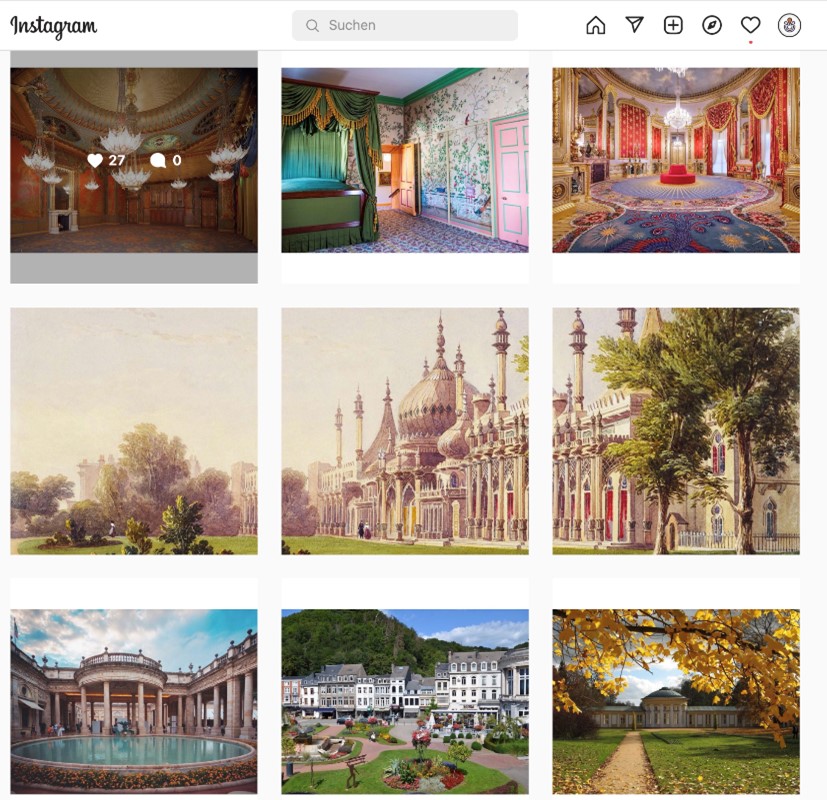
Caption: Presenting facets of European spa culture on our Instagram page (screenshot)
- Publication
Publication / Translation of Abby Palmer’s ‘Sanatorium’
This is one of the activities & outputs that could not have been envisaged when planning the project: “Sanatorium” was first published in 2020 and is a highly interesting contribution of a young, queer, disabled woman to the contemporary discourses about wellness, health and wellbeing. With our translation, we take a book with an inherently European framework – it is set in Budapest and London – to a wider European audience. Translation and author will feature this year at the international literary festival “Poetische Quellen”, organized by our associate partner in Bad Oeynhausen.
